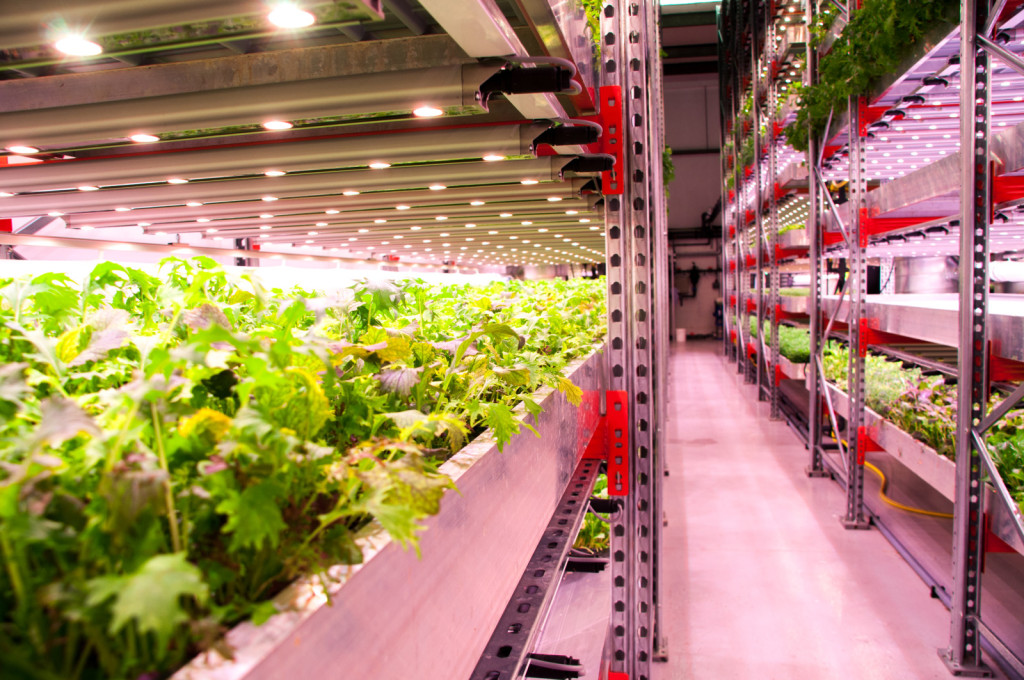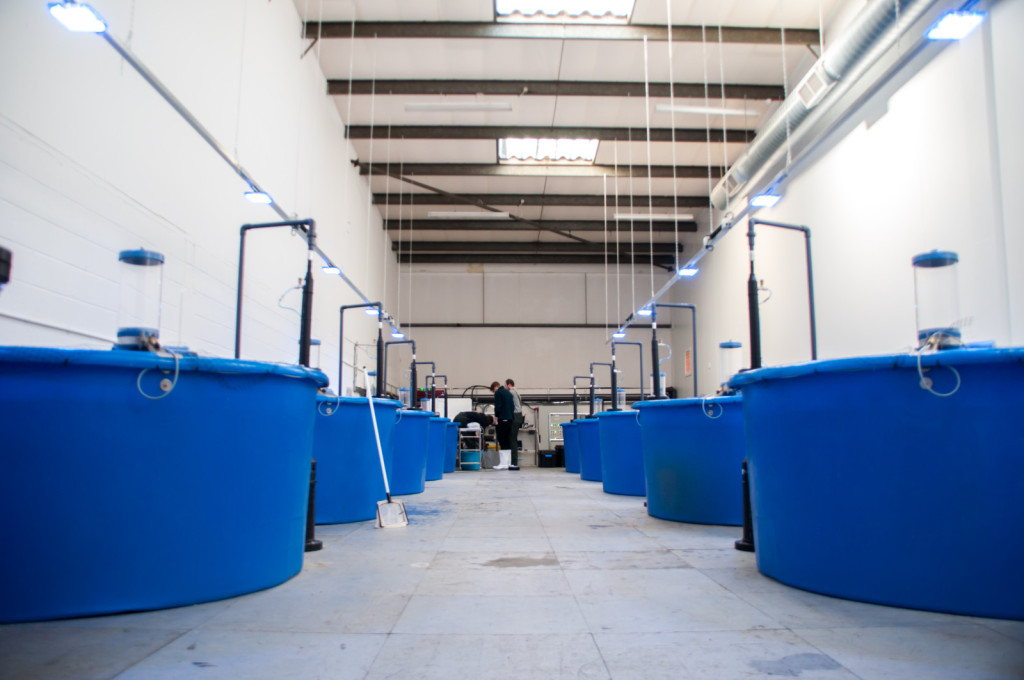In the most unlikely and unnatural setting you can imagine (a warehouse on an industrial estate in Beckton, near London), a food production revolution is underway – one that aims to solve a global challenge using a local solution.
The secretive-sounding UNIT 84 (it’s not, you can do tours), houses London’s first commercial aquaponic farm – a highly inventive solution to bringing food production inside cities by working with their constraints and limitations in some very clever ways.
UNIT 84 is an ingenious morphing of hydroponics, aquaculture and the founder’s values around sustainability. Hydroponics means plants are grown using water with nutrients not soil and aquaculture is ostensibly fish farming. Fusing the two has enabled this production system to overcome some serious limitations. This is a heavyweight operation, with big plans to scale the system to other cities in the near future.
The company, GrowUp, had a clear challenge; produce healthy, sustainable food within the bounds of London, whilst minimising the use of land, water and energy to achieve that ambition. They set themselves the challenge of ‘running a farm in a warehouse in London’, an ambition that sounded wholly unachievable at first glance.

In essence, the company had set themselves a very powerful Propelling Question that kept their ambition high despite the serious constraints they had applied to themselves from the start:
‘How can we have a sustainable farm in London (ambition) when we don’t have any land? (constraint)’
The power of the Propelling Question is that there is often more chance of achieving and even surpassing seemingly unrealistic ambitions by embracing and indeed increasing the constraints you are facing.
So, how did they do it?
The main constituent of any food production system is water, so the founders decided to use the water from the fish production facility, that includes nutritious fish poo to feed the vegetables. The vegetables in turn filter the water which is returned to the fish tanks – a symbiotic relationship, as biologists would say.
To achieve a large enough footprint for the vegetable production system, the vegetable and herb beds had to be stacked vertically in a racked multi-storey layout, from floor to ceiling in the warehouse – a highly efficient way of growing produce.
The water from the tanks, containing 4800 Tilapia fish is re-circulated to over 800 square meters of these vertical beds and because of this, only a tiny proportion of the usual volume of water is required to grow such a large quantity of vegetables which can be harvested all year around.

The venture aims to prove it can sustainably make a profit before the model is replicated in other cities and it is a great example of how focussing on local solutions to global problems can make a positive commercial and sustainable impact.
Setting a powerful Propelling Question (‘How can we have a sustainable farm in London when we don’t have any land?’) acts as a driver to uncovering a set of inventive and productive solutions to seeming impossible constraints and limitations, that can be connected as a ‘whole system’ solution.
Reconsidering the assets we have at our disposal and how they could fit together in different ways, starts to open up new possibilities and avenues. From a tiered system of vegetable beds to using fish poo as fertiliser, GrowUp turned the limited resources they had into valuable, hard-working assets that helped answer their Propelling Question in unconventional and inventive ways.
This Propelling Question is so powerful that it might contribute to helping solve one of our most pressing global needs – creating sustainable food sources for rapidly growing populations.
Three key take outs:
-
Your ambition can never be too big, and if it feels comfortable, you need to raise it. GrowUp aim to be a major player in eliminating our global food shortage. That’s a big ambition!
-
Impose constraints on yourself before someone else forces you to. GrowUp forced themselves to fit a whole farm in an industrial unit that included meat (fish) and vegetables, all within a stones-throw from London. These are tough constraints to contend with and ones that forced them to be extremely innovative in the final solution.
- Update your Propelling Question as things change. GrowUp have now set themselves a complimentary Propelling Question to deal with labour shortages: ‘How do we find farm-loving employees to train and educate (ambition) when we only have a population of city dwellers to draw upon (constraint).’
The GrowUp phenomenon is happening right beneath our noses and it is truly revolutionary. Find out more about how they do it in this recent BBC Radio 4 documentary.
This piece appeared in a beatiful constraint.



